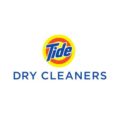Glossier Achieves Unicorn Status; Hyundai & Kia Invest in Ola
by Hugh Williams on 20th Mar 2019 in News


DTC’s Daily Digest brings you the latest news on the world’s fastest growing direct-to-consumer brands. In today’s edition: Glossier achieves Unicorn status; Hyundai and Kia invest in Ola; and Adidas’ painful shift to DTC.
Glossier achieves Unicorn status
Direct-to-consumer beauty company Glossier has raised a USD$100m (£75.35m) Series D, led by Sequoia Capital. This takes the business’ valuation to over USD$1bn (£753.5m), officially recognising it as a unicorn.
Grand View Research predicts that the global beauty and personal care products industry will grow to USD$716.6bn (£539.9bn) by 2025, and companies like Glossier are poised to capitalise on that. The startup started out in 2014 almost exclusively online. It currently has nearly two million Instagram followers and is an example of the power of social media to sell products, particularly among millennials and Generation Z.
Glossier has developed into a USD$100m/year in revenue business; and the rate at which it has done so is startling, with revenue more than doubling in 2018. The business is planning to use the new capital to expand its product line.
Glossier’s future will be closely monitored, with the beauty industry seeing some impressive exits in recent years. In 2016, L’Oreal agreed to acquire prestige beauty brand IT Cosmetics for USD$1.2bn (£904.2m) in cash in a deal that marked its largest purchase in eight years. Also in 2016, Estée Lauder bought out makeup brand Too Faced Cosmetics for USD$1.45bn (£1.09bn).
Hyundai & Kia invest in Ola
South Korean automakers Hyundai Motor Co and Kia Motors Corp will together invest USD$300m (£226m) in Indian ride-hailing platform Ola, playing catch-up in the global race to invest in mobility firms.

The move follows the USD$275m (£207.2m) that the pair invested in Singapore-based ride-hailing firm Grab last year. Hyundai, Kia, and Ola will collaborate to develop fleet and mobility solutions, electric vehicles, and infrastructure specific to the Indian market, they said in a joint statement.
The deal, Hyundai and Kia’s biggest combined investment, marks Hyundai’s foray into fleet vehicles. Ola’s other investors include SoftBank Group and Tencent Holdings. Flipkart’s founder, Sachin Bansal, has also recently invested in Ola. The move will help Ola compete with Uber in India, a market that Uber have identified as their highest priority outside the U.S.
This investment, targeted specifically at the Indian market, will help Ola innovate their transport technology, as well as the actual ride-hailing platform. Innovation is something which Uber have lagged behind in recently, sticking with the tried-and-tested platform for years rather than driving ahead. If Ola can use this investment to make significant innovations in their fleet, this could prove their competitive advantage.
Adidas’ painful shift to DTC
Adidas has predicted that its supply chain will hold its growth back over the next six months as it continues to adapt to selling directly to consumers.

Part of Adidas’ focus on e-commerce has required them to invest in their own logistics capabilities. Overall, 12% of its capital expenditure in 2018 went into logistics, and the brand also expanded its logistics workforce by 5%.
The company claims to be “omnipresent” in the customer journey, offering the chance to view in-store inventory, click and collect, ship from store, and return to store. At the same time, Adidas is cutting the number of its stores.
While this will be a painful transition for Adidas, it is a matter of ripping of the bandaid. The initial transition to a direct-to-consumer model will be painful, with Adidas saying that supply chain shortages would prevent it from fulfilling orders for mid-priced apparel in the first half of 2019. This is expected to reduce growth in 2019 by up to 2%.
However, it needs to be done. They have already lost ground to direct-to-consumer footwear brands such as Allbirds, while their leading mainstream competition Nike already have a strong direct-to-consumer offering.







Follow Fast Growth Brands